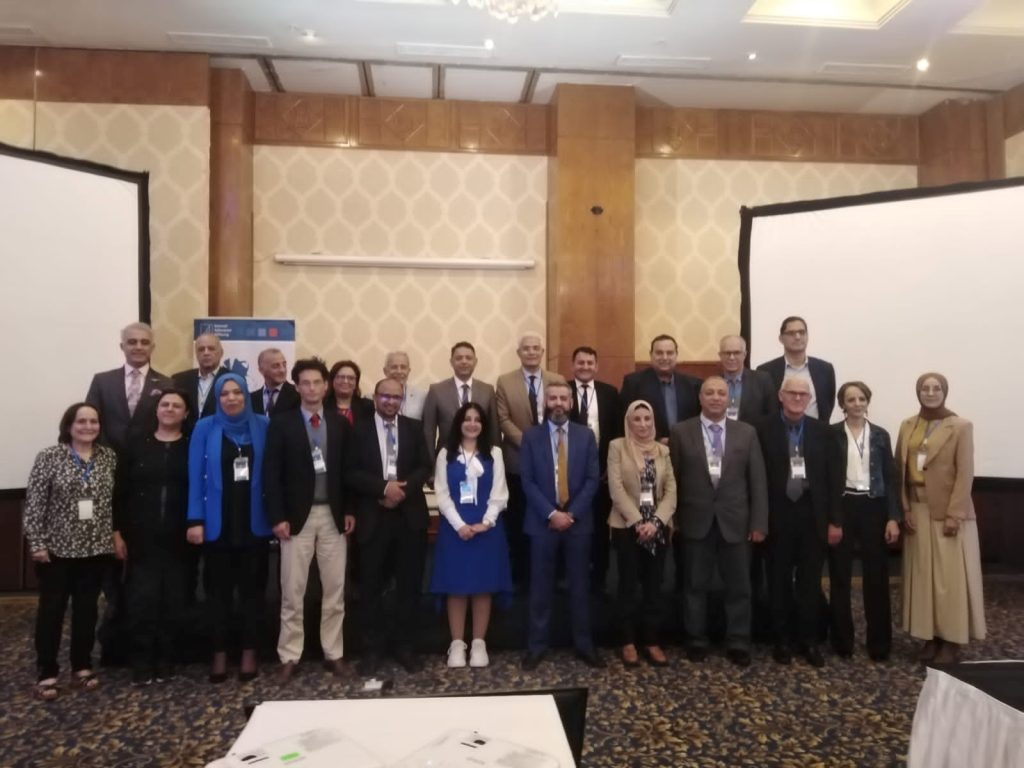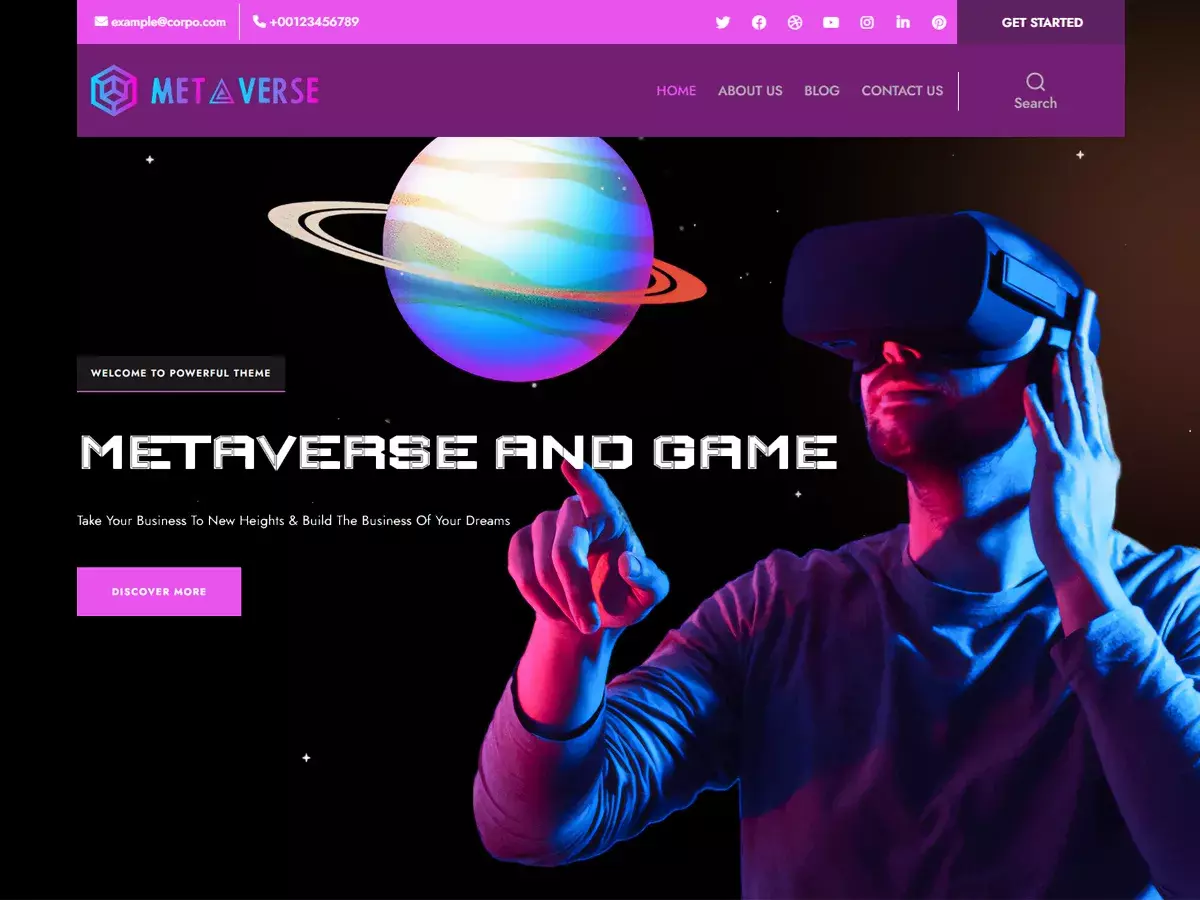In order to develop a national framework for citizenship education based on an effective participatory approach, the International Network for the Study of Arab Societies (ENAS), in partnership with the Konrad Adenauer Foundation – Algeria Office – and the Higher Institute for Applied Studies in the Humanities in CAF, University of Jendouba (Tunisia), organized the international scientific conference “Education on Citizenship.” Citizenship in Educational Curricula in Arab Countries,” at the Regency Hotel – Tunis on April 18-19, 2024.
The organization of this conference came as a continuation and enrichment of the exchange, which was initiated by the organizing institutions at the Algiers Conference (December 1, 2022), between researchers, educational actors, official Arab institutions, and civil society institutions.
The conference aimed to study the topic of citizenship education, its connotations and dimensions in Arab educational systems, with their different models and experiences, through various approaches, the most important of which are the contents of curricula and textbooks, the legal texts that govern them, and the department’s practices among educational actors, including teachers and pedagogical personnel, not to mention the digital dimension, or what it is called. Participating researchers digital citizenship or digital education.
18 speakers and discussants, male and female researchers, participated in the conference in various specializations in the educational field, social sciences and humanities, and educational actors who came from Tunisia, Algeria, Lebanon, Morocco, Libya, Egypt and Switzerland.
The conference sessions discussed the following main topics:
The first session dealt with “citizenship issues and socialization issues,” where Dr. Adnan Al-Amin from Lebanon and Dr. Ahmed Musawi Badawi from Egypt on the issue of concepts, and the relationship of citizenship education to social and political stakes at the local level. Dr. presented. Munther Al-Tamni from Tunisia. Examples of citizenship education outside the school walls through citizenship education clubs.
The second session targeted the topic “Citizenship and Pedagogical Practices in Educational Systems in Arab Countries”, Where Dr. presented Samira Al-Walhazi gave a presentation on the obstacles to citizenship education in the Tunisian educational system, and Dr. focused on: Nadim Mansouri emphasized the adequacy of citizenship and digital education as fundamental pillars of the new Lebanese curriculum under discussion, and Dr. Jilali Al-Mestari from Algeria discussed religious education and the duality of state ideology and the ideology of educational actors, and how the content of citizenship education in a curriculum is modified to justify a local religious and identity discourse.
The third session stopped at “Citizenship Education in the Face of Identity Issues and Global and Environmental Changes,” where Dr. Ali Al-Muhankar from Libya discussed the importance of focusing on the dimension of national belonging in light of rapid international changes that, in his view, threaten the unity of countries and national identities, and Dr. Nidal Saleem from Switzerland stopped. When it is necessary to integrate education on environmental citizenship into educational curricula and Arab development programmes, Dr. Fatima Al-Zahra Boulfdaoui from Algeria spoke about the representation of the homeland and its relationship to citizenship in geography books at various educational levels. Dr. Mustafa Mojahedi from Algeria: Representations of citizenship in Algerian academic discourse through analysis of a blog of articles published in the Algerian magazine base.
In the fourth session, we returned to “Legal Frameworks and Digital Challenges for Citizenship Education,” where the interventions of Dr. Jawhar Al-Jamousi from Tunisia and Dr. Mounira Bouder, son of Dr. Congratulations to Boutouqa on the technical, social, political, educational and ethical stakes of the digital revolution, the virtual world and artificial intelligence. The interventions of both Dr. Jawad Al-Rabbaa from Morocco and Dr. Salah Al-Din Saleh to the stakes of the legal, legal and political level of citizenship education in light of the new requirements of Arab societies.
The closing session began with Dr. Lahazi, who stressed the importance of moving from the cognitive level to the level of application and actual practice of citizen action, while A. stopped. Matthias Schaffer enriched the conference’s interventions and discussions, stressing the importance of separating the concepts, especially those related to the relationship of citizenship to the discourse of “values” in educational systems, and concluded with an analysis of the German educational model in citizenship education and the importance of comparing it with Arab educational systems by virtue of their commonality in many aspects. Issues such as the digital issue and mountain stakes. Dr. concluded. Maryse Younes highlighted the work of the conference by emphasizing the completion of the process and taking the first steps by forming a specialized committee to follow up on the conference’s outcomes, recommendations and proposals, especially the participation of concerned educational actors and decision makers with its outcomes. She extends her thanks to all researchers, male and female, and partners, for their active contribution to the success of the conference’s work and enriching its discussions.
The conference papers did not stop at diagnosing the Arab educational reality, but rather presented some models and pedagogical approaches to support the educational consolidation of citizenship, as an applicable practice, in Arab educational systems from within or outside the school through the effectiveness of civil society. Examples of these approaches include technological skills and control of the digital space, in addition to the topics of human rights, children’s rights in particular, the environment and climate change, not to mention some themes that are still the subject of debate among Arab educational elites, such as the themes of gender and religious diversity.
The conference discussions ended with a number of proposals:
- The importance of defining the epistemological and procedural meanings of citizenship in the educational context in order to consolidate the principles of coexistence within the framework of respect for the law, fairness, and justice.
- Building an educational context for creating and implementing curricula, based on three approaches: the comprehensive approach, the cognitive approach, and the participatory approach.
- Adopting citizenship education as a framework for education, school management, classroom management, and organizing student activities inside and outside the school (school climate).
- Participation of actors concerned with educational curricula in developing and implementing them, starting from developing the curriculum plan all the way to teaching students in the classroom and evaluating their performance in exams. It should be done on the basis of policies, i.e. programmes, and not on the basis of politics on the one hand, and on the basis of interaction with civil society and the scientific community on the other hand.
- Identifying the actors concerned with participating in the development of educational curricula, starting from the scientific community, scientific associations, and independent academics who have knowledge contributions to the issues at hand, all the way to civil society actors, teachers’ and students’ associations, and professional bodies.
- Accumulating field data on Arab educational systems and their development.
- Adopting the method of accompanying and training educational actors and updating their data on citizenship education practices.
- Developing knowledge of global experiences in curriculum creation, ways of radical change and modernization, and comparing Arab educational systems with their counterparts in Europe and Germany in particular, due to common stakes and interests.
- Developing knowledge related to learning (cognitive approaches) and theories of knowledge (Piaget
- Vygotsky), and constructivist theory, in addition to developing knowledge related to each educational subject separately.
- Opening the door to participation in the decisions taken in the school for teachers, students and parents (each in the field appropriate to them) and establishing elected committees and councils for students, teachers and parents.
- Developing a national framework for citizenship education that provides all those concerned with citizenship education with the main principles and rules, provided that all those working in curriculum development, including educators, civil society bodies, the scientific community, and the contributing and concerned international organizations, read the book itself.
- Share these proposals and the outcomes of our conference with all stakeholders, including political and educational decision-makers in Arab educational systems, educators, civil society bodies, the scientific community, international organizations, and media institutions.
The conference participants came up with a major executive recommendation: forming a committee of experts from the International Network for the Study of Arab Societies entrusted with the task of drafting an applicable road paper directed to educational decision-makers in the Arab world, starting with ALECSO, based on the importance of the effective participatory approach.











